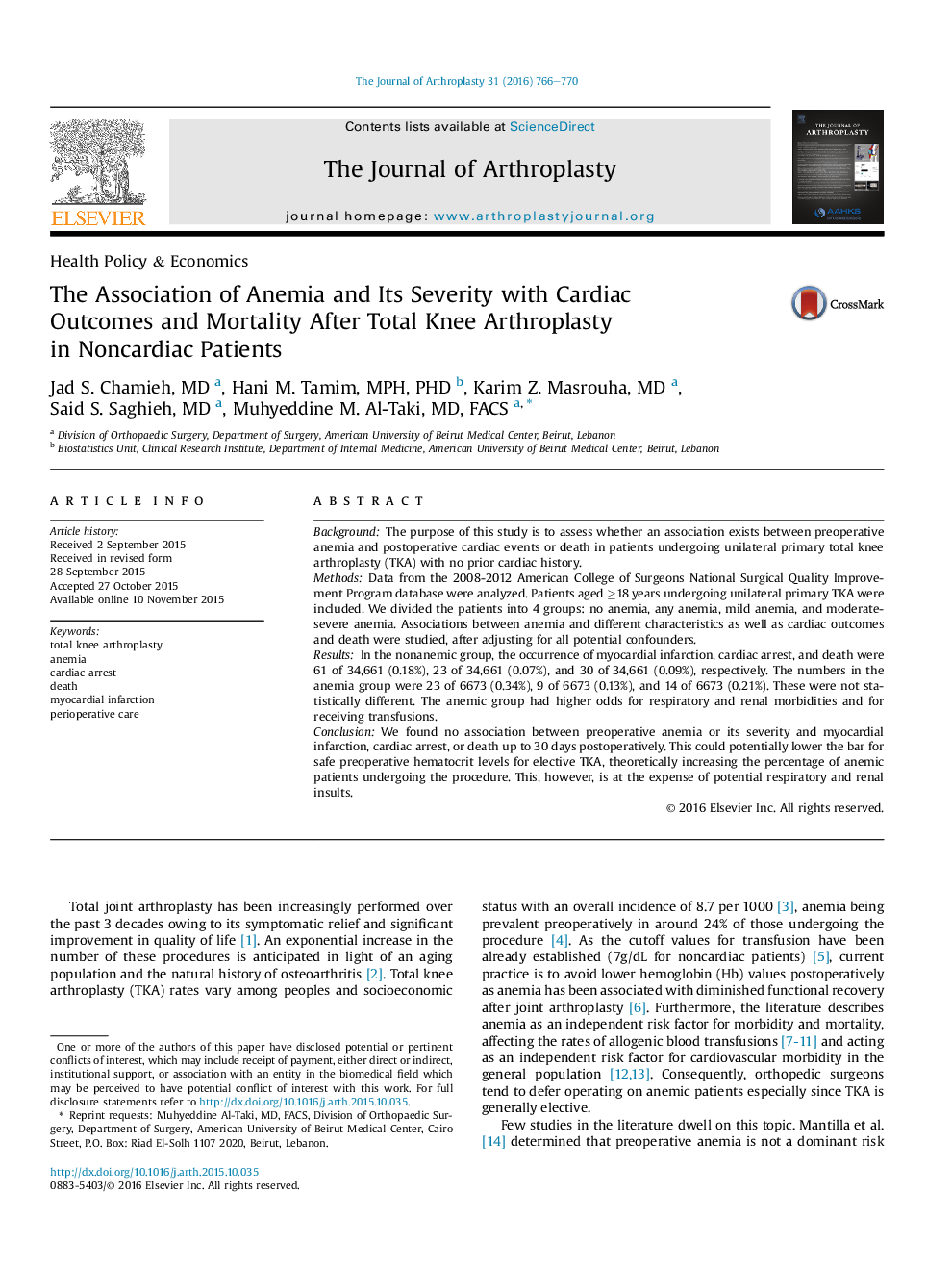| Article ID | Journal | Published Year | Pages | File Type |
|---|---|---|---|---|
| 4060068 | The Journal of Arthroplasty | 2016 | 5 Pages |
BackgroundThe purpose of this study is to assess whether an association exists between preoperative anemia and postoperative cardiac events or death in patients undergoing unilateral primary total knee arthroplasty (TKA) with no prior cardiac history.MethodsData from the 2008-2012 American College of Surgeons National Surgical Quality Improvement Program database were analyzed. Patients aged ≥18 years undergoing unilateral primary TKA were included. We divided the patients into 4 groups: no anemia, any anemia, mild anemia, and moderate-severe anemia. Associations between anemia and different characteristics as well as cardiac outcomes and death were studied, after adjusting for all potential confounders.ResultsIn the nonanemic group, the occurrence of myocardial infarction, cardiac arrest, and death were 61 of 34,661 (0.18%), 23 of 34,661 (0.07%), and 30 of 34,661 (0.09%), respectively. The numbers in the anemia group were 23 of 6673 (0.34%), 9 of 6673 (0.13%), and 14 of 6673 (0.21%). These were not statistically different. The anemic group had higher odds for respiratory and renal morbidities and for receiving transfusions.ConclusionWe found no association between preoperative anemia or its severity and myocardial infarction, cardiac arrest, or death up to 30 days postoperatively. This could potentially lower the bar for safe preoperative hematocrit levels for elective TKA, theoretically increasing the percentage of anemic patients undergoing the procedure. This, however, is at the expense of potential respiratory and renal insults.
